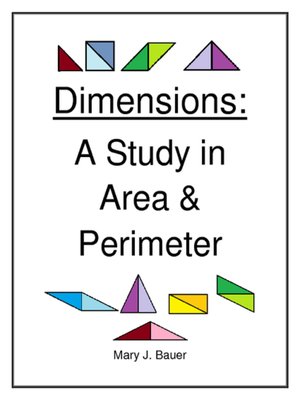
Sign up to save your library
With an OverDrive account, you can save your favorite libraries for at-a-glance information about availability. Find out more about OverDrive accounts.
Find this title in Libby, the library reading app by OverDrive.



Search for a digital library with this title
Title found at these libraries:
| Library Name | Distance |
|---|---|
| Loading... |
I have been working with an adopted curriculum that is far too abstract for my students and so I have been creating materials for whole group and small group lessons. There are enough options here for math centers as well. Included in this unit are worksheets for squares and rectangles, dimension cards on 1 inch grid paper, and an answer key.
I started these lessons with cutting construction paper squares and rectangles in these dimensions: 1 X 1, 2 X 2, 3 X 3, 4 X 4, 5 X 5, 6 X 6, 1 X 2, 2 X 3, 2 X 4, 3 X 4, 3 X 6, and 4 X 6. I demonstrated drawing and cutting the diagonal and measuring the sides. We talked about the formulas for area and perimeter for rectangles, triangles, and parallelograms as we created the other shapes on the worksheets. I emphasized that the area would be the same for all the shapes except the half triangle. (This was a tough idea for a lot of my students. It was not intuitive that even though I cut and reassembled the paper, the amount would not change.)
I have created the same dimensions with 1 inch grid paper to extend the experience. I recommend having students measure the diagonals in inches with a ruler. Students see the diagonals of squares as equal to the sides. They need experiences to see this isn't true.
Visit my shop, Mary Bauer, at Teacher's Notebook.
Or view this product, Dimensions: A Study in Area and Perimeter.







